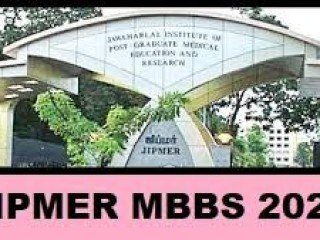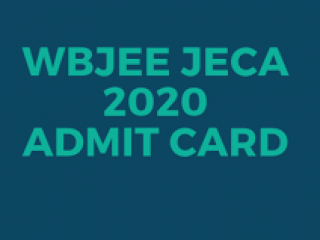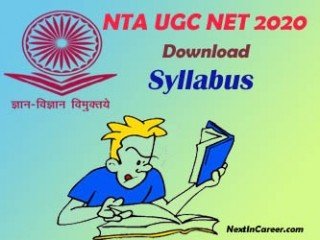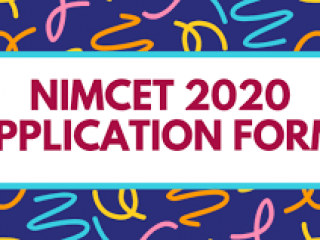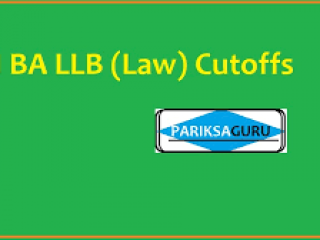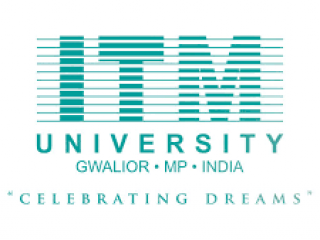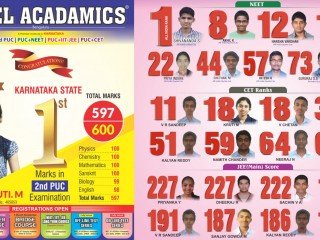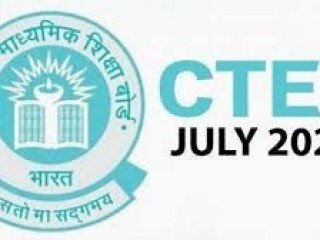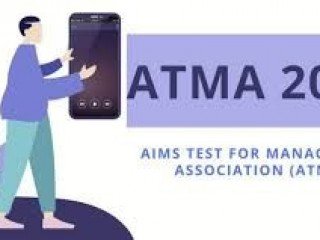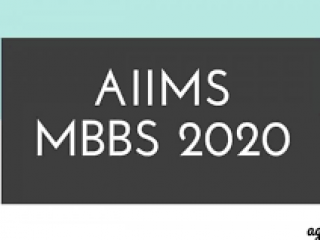JEE ADVANCED 2020 Exams
6 years ago - EXAM - All India - 1K viewsJEE Advanced 2020 will be conducted on May 17, 2020 in India and abroad. IIT Delhi will be conducting JEE Advanced 2020 under the guidance of Joint Admission Board (JAB). The number of eligible students for the exam have been increased by 10,000. Now 2.5 Lacs candidates will be eligible for JEE Advanced instead of 2.4 Lacs. Also, JEE Advanced will be conducted in the US for the first time. To serve this purpose, an Exam Centre will be set up in San Francisco area.
- JEE Advanced Paper 1 will start at 9.00 A.M. and end at 12 noon (IST). Paper 2 will be conducted from 2.30 P.M. to 5.30 P.M. (IST).
- JEE Advanced Exam Pattern consists of 2 compulsory papers i.e. Paper 1 and Paper 2 of 3 hours duration each. Details of the marking scheme will be provided in the “Instructions to Candidates” section at the time of examination shall provide the detailed marking scheme of the examination.
- Top 2,50,000 rank holders in JEE Main shall be eligible to sit for JEE Advanced 2020.
- JEE Advanced Cut off will be declared by IIT Dellhi about a month after the exam day. Candidates can check the previous year cut off for JEE Advanced to get a fair idea.
JEE Advanced 2020 is a national-level entrance exam conducted for providing admissions in the engineering programs in IITs. The seven zonal IITs conduct the exam under the guidance of Joint Admission Board (JAB) for admission into Bachelor’s, Integrated Masters and Dual Degree programs for all the IITs.
LATEST APPLICATION FORMS 2020
Read more about the following article to know all the details about JEE (Advanced) 2020 such as important dates, eligibility, reservation criteria, pattern, syllabus, cutoff, admission process, and seat allotment.
JEE Advanced 2020 Highlights
| Exam Name | Joint Entrance Exam (JEE) Advanced |
|---|---|
| Exam Level | National |
| Conducting Authority | IIT Delhi |
| Language | Hindi & English |
| Official Website | jeeadv.ac.in |
| Exam Mode | Online |
About JEE Advanced
- JEE Advanced is the second phase of the Joint Entrance Examination (JEE).
- Top 2 lakh fifty thousand AIR holders from JEE Main 2020 are eligible to apply for JEE Advanced.
- JEE (Advanced) is conducted to fill 10,988 seats in 23 IITs (Indian Institute of Technology) and IISC Bangalore.
- JAB (Joint Admission Board) formed by the participating IITs is the regulatory body of JEE Advanced.
- Architecture Aptitude Test (AAT) is conducted after the JEE Advanced test.
JEE Advanced 2020 – Zone-wise Statistics
| Zone | No. of Applicants (Appeared) | No. of Applicants (Absent) | ||
|---|---|---|---|---|
| - | Paper 1 | Paper 2 | Paper 1 | Paper 2 |
| IIT Bombay | 27004 | 26205 | 1801 | 2608 |
| IIT Delhi | 31066 | 30838 | 818 | 1046 |
| IIT Guwahati | 11372 | 11166 | 535 | 741 |
| IIT Kanpur | 19745 | 19598 | 683 | 829 |
| IIT Kharagpur | 18161 | 17823 | 984 | 1322 |
| IIT Madras | 36169 | 35605 | 2062 | 2626 |
| IIT Roorkee | 13979 | 13855 | 435 | 559 |
JEE Advanced 2020 Important Dates
Candidates must go through the following table to get an idea of the timeline for JEE Advanced 2020:
| Events | Dates |
|---|---|
| Official Notification | First week of May (Tentative) |
| Availability of application form | First week of May (Tentative) |
| JEE Advanced 2020 Exam Date | May 17, 2020 (Sunday) |
| Release of JEE Advanced 2020 Answer Key | First week of June (Tentative) |
| JEE Advanced 2020 Result | Second week of June, 2020 (Tentative) |
Changes in JEE Advanced
What’s New in JEE Advanced 2020
- JEE Advanced is conducted completely in online (computer-based) mode.
- The reservation for PwD candidates has increased from 3% to 5%.
- More emphasis will be given to cultural diversity in the selection process.
- 10,000 more candidates will be shortlisted from JEE Main.
- The exam will be conducted in the United States (San Francisco) for the first time.
- A total of 5 JEE Advanced Exam Centers must be chosen while filling the application form;earlier it was 3.
Difference b/w JEE Main and JEE Advanced
JEE Main is the eligibility test for appearing in JEE Advanced examination. Check the following differences between the two:
- Conducting Body: From 2020 onwards, JEE Main is conducted by NTA. But JEE Advanced is held by one of the seven Zonal Coordinating (ZC) IITs on a rotational basis, under the guidance of JAB every year.
- Eligibility: Top 2.50 Lakh JEE Main qualifying candidates are eligible to appear for the test. NTA defines the JEE Main eligibility on specific criteria such as qualifying exams, passing marks, etc.
- Number of Attempts: A student can appear for JEE Main for 3 consecutive years while for JEE Advanced, he/she can appear for only 2 consecutive times.
- Exam Pattern: NTA defines the exam pattern for JEE Main, whereas there is no fixed pattern for JEE Advanced.
JEE Advanced Eligibility
Eligibility for JEE Advanced 2020
Both Indian and foreign nationals (including OCI/PIO) are eligible to apply for JEE Advanced 2020. However, foreign candidates are not required to take JEE Main and may register for JEE Advanced directly.
- Performance in JEE Main 2020: Top 2, 50,000 All India Rank holders in JEE Main 2020.
- Age: There is no age limit.
- Number of Attempts: Only 2 times in 2 consecutive years
- Appearance in Class 12 (or equivalent): Candidates appearing for 10+2 or equivalent in 2020 are also eligible.
- Earlier Admission at IITs:
- Students who rejected the seat of IIT earlier are not eligible to apply.
- Those who joined preparatory courses in any of the IITs in the previous academic sessions can also apply.
- And those who have paid the seat acceptance fee but still not accepted the seat are also eligible.
- Performance in Class 12 (or equivalent):
- Minimum 75% marks in 10+2 or equivalent or they must be within the category-wise top 20 percentile of qualified candidates in their particular 10+2 or equivalent examination.
- Candidates who appeared in 10+2 examination in 2018 but reappeared in 2020, the best performance from the two will be considered.
The applicants should not have appeared for JEE Advanced in 2018 or earlier.
Facility of Scribes in JEE Advanced
Only PwD candidates are permitted to use the service of the scribe, and they will get an hour as a compensatory time to complete each paper. The criteria for availing the service of the scribe are:
Only PwD candidates who are visually impaired OR dyslexia OR have a disability in the upper limbs or have lost fingers/hands thereby preventing them from operating the Computer Based Test platform properly.
Ques. How to avail the service of the scribe?
Ans. Opt the option for services of scribe and upload a copy of PwD certificate during JEE Advanced online registration. Along with this, candidates should request the Chairman, JEE (Advanced) 2020 of the respective zonal coordinating IIT in the prescribed format (provided in information brochure- annexure 2).
Ques. Will the conducting authority provide scribe?
Ans. Zonal coordinating IITs will make arrangements to provide a panel of scribes. Scribes will be students of Class XI from the science stream with Mathematics as one of the subjects. The PwD/dyslexic candidate has to choose a scribe from this panel. They are NOT allowed to bring their scribes.
JEE Advanced 2020 Reservation
Candidates belonging to SC /ST /OBC-NCL /PwD / Defence Personnel can claim for reservation. The reservation matrix of seats are provided below:
- OBC – NCL: 27%
- SC – 15%
- ST – 7.5%
- Open – 50.5%
- Within each of these four categories, 5% horizontal reservation is available for PwD candidates.
- Seats allotted to foreign nationals are supernumerary with a cap of 10% of a total number of seats in every course.
- Foreign nationals are outside the ambit of reservation of seats under the OBC-NCL, SC, ST and PwD categories.
Ques: I am an OBC-NCL candidate and my caste is mentioned only in the state list of OBCs but not in the central list of OBCs at www.ncbc.nic.in. Am I eligible for reservation?
Ans: No. For availing the benefits of reservation, OBCs should be listed in the current updated central list of OBCs at the NCBC website.
Ques: What is the Non-Creamy Layer (NCL) criteria for availing benefits of reservation under OBC NCL category?
Ans: The criteria for Non-Creamy Layer will be as per the current notification of Government of India.
JEE Advanced Registration
JEE Advanced 2020 Application Form
JEE Advanced Application Form is available from second week of May(Tentative) in online mode only. Candidates can fill the form on the official website of JEE Advanced. Check below all important steps to complete the registration process:
Step 1: Registration & Application Form
- Log in with JEE Main 2020 Roll Number and Date of Birth
- Choose a new password to complete Registration
- Fill the personal and academic details.
- Mention the number of attempts, exam center, the language of exam, category and the requirement of the scribe.
Step 2: Upload Documents
JEE (Main) qualified candidates are required to upload the following scanned certificates in JPG format:
| Certificate to be uploaded | Remarks | Min Size |
|---|---|---|
| Class-X or Birth Certificate | Required for all candidates | 50 – 300 KB |
| Class-XII (or equivalent) Certificate | Required only for those who have passed in the year 2018 and 2016 (if the examination Board of Class XII declares results for the academic year 2015-16 after June 2016 | 50 – 300 KB |
| Category Certificate | Required only for SC /ST /OBC-NCL candidates | 50 – 300 KB |
| An additional category Certificate (Optional) | Required only for SC/ST/OBC candidates | 50 – 300 KB |
| PwD Certificate | Only for those who have opted PwD as “Yes” | 50 – 300 KB |
| Scribe Request Letter | Only for those who have opted PwD as “Yes” and Scribe Request Letter as “Yes” | 50 – 300 KB |
| DS Certificate | Only for those who have opted DS as “Yes” | 50 – 300 KB |
| OCI Card / PIO Card | For those whose nationality is OCI or PIO | 50 – 300 KB |
Step 3: Pay Application Fee
Payment of fees can be made either by Debit/Credit/Internet Banking or by Cash using SBI branch option. The application fee is elucidated in the table given below:
| Registration Fee for Examination Centers in India | ||
|---|---|---|
| Indian Nationals (including PIO/OCI) | Female Candidates (all categories) | INR 1300 |
| SC, ST, PwD Candidates | INR 1300 | |
| All Other Candidates | INR 2600 | |
| Foreign Nationals | Candidates from SAARC countries | USD 160 |
| Candidates from Non-SAARC countries | USD 300 | |
| Registration Fee for Examination Centers outside India | ||
| Indian Nationals (including PIO/OCI) | All India Nationals | USD 160 |
| Foreign Nationals | Candidates from SAARC countries | USD 160 |
| Candidates from Non-SAARC countries | USD 300 | |
JEE Advanced 2020 Admit Card
JEE Advanced 2020 Admit Card will be released in the third week of May (Tentative) on the official website jeeadv.ac.in.
To download JEE Advanced 2020 Admit Card, one must follow these steps:
- Visit the official website of JEE Advanced i.e. jeeadv.ac.in
- Click on the link for ‘JEE Advanced 2020 Admit Card’
- Enter your registered application number and password
- Check details on admit card
- Print it for further use
Candidates need to carry admit card to the examination center along with photo ID proof. Without admit card, they will not be allowed to write the examination.
JEE Advanced 2020 Exam Centers
- JEE Advanced exam centers have been set up in 161 cities for the year 2020.
- While making the registration, it is mandatory to choose 5 exam centers from an IIT zone.
- Request for change of exam centers will not be entertained.
- The reporting time and instructions to be followed at the exam center will be mentioned on the admit card.
- Report to the exam center in advance.
JEE Advanced Exam Pattern
JEE Advanced Exam Pattern
- The exam will comprise 2 papers- Paper 1 and Paper 2 of 3 hours duration each.
- The question papers will be in English and Hindi languages.
- Each question paper will consist of 3 separate sections- Physics, Chemistry and Mathematics.
- The questions will be 3 type-Multiple Choice Questions, Numerical Aptitude Type and Match the cases.
- The marking scheme will be provided in “Instructions to Candidates” at the time of examination.
There is no fixed pattern of the exam. Here, we have defined the JEE Advanced Exam Pattern based on the analysis of previous year question papers:
JEE Advanced Paper 1 Pattern:
| Pattern | Section 1 | Section 2 | Section 3 |
|---|---|---|---|
| Question Type | 1 or more correct options | Single digit integer | Single option is correct |
| Number of Questions | 7 | 5 | 6 |
| Max. Marks | +4 | +3 | +3 |
| Partial Marks (if the only correct answer is marked and no incorrect answer) | +1 | No partial marking | No partial marking |
| Negative Marking | -2 | No negative marking | -1 |
| Total Marks | 28 | 15 | 18 |
JEE Advanced Paper 2 Pattern:
| Pattern | Section 1 | Section 2 | Section 3 |
|---|---|---|---|
| Question Type | 1 or more correct options | Single correct option | Single correct option |
| Number of Questions | 7 | 7 | 4 |
| Max. Marks | +4 | +3 | +3 |
| Partial Marks (if the only correct answer is marked and no incorrect answer) | +1 | No partial marking | No partial marking |
| Negative Marking | -2 | -1 | No negative marking |
| Total Marks | 28 | 21 | 12 |
Ques. Why does JEE Advanced Pattern change every year?
Ans. The question paper of JEE Advanced is set up by a team of expert professors from different IITs. The pattern is changed every year to bring out the best students. Also, the judging parameter cannot be the same for an increase in the number of engineering aspirants. As JEE (Advanced) is a top-notch UG engineering entrance examination for admission to elite colleges. So,
Ques. What is the pattern for AAT?
Ans. The test will be held in offline mode. The question paper is divided into 5 sections which must be completed in 3 hours. The language of the question paper will be set in English only.
JEE Advanced Syllabus with Analysis
The exam conducting body releases Syllabus of JEE Advanced every year. More or less, the syllabus is usually the same. Students appearing for the exam can refer NCERT textbooks for class 11 and 12 for the exam syllabus.
| Subject | Syllabus |
|---|---|
| Physics | Mechanics, Thermal Physics, Electricity and Magnetism, Optics, Modern Physics. |
| Chemistry | Gaseous and liquid states, Atomic structure and chemical bonding, Energetics, Chemical equilibrium¸ Electrochemistry¸ Chemical kinetics, Solid state, Solutions, Surface Chemistry, Nuclear Chemistry, Transition elements, Ores and minerals¸ Extractive metallurgy, Preparation, properties and reactions of alkanes, alkenes & alkynes, Reactions of benzene, Phenols, Carbohydrates, Amino acids and peptides. |
| Mathematics | Algebra, Trigonometry, Analytical Geometry, Differential Calculus, Integral Calculus, Vectors. |
| AAT | Freehand drawing, Geometrical drawing, Three-dimensional perception, Imagination and aesthetic sensitivity, Architectural awareness. |
JEE Advanced Study Material
The difficulty level of JEE Advanced is higher as compared to JEE Main as it is the second stage of Joint Entrance Examination. Candidates will be tested not only their knowledge of fundamental concepts but their applications as well.
Download Previous Year Question Paper/Sample Papers
JEE Advanced Result 2020
The result for JEE Advanced 2020 has been announced on June 14, 2020. The result can be viewed by logging-in with Registration Number, Date of Birth, Mobile Number and Email Address. The result is released in the form of a scorecard. With the scorecard, candidates can also check their AIR (All India Rank) and category-wise AIR.
JEE Advanced 2020 Toppers
| Zone | Toppers' Name |
|---|---|
| IIT Bombay | GUPTA KARTIKEY CHANDRESH (CRL 1) |
| IIT Delhi | HIMANSHU GAURAV SINGH (CRL 2) |
| IIT Guwahati | PRADIPTA PARAG BORA (CRL 28) |
| IIT Kanpur | DHRUV ARORA (CRL 24) |
| IIT Kharagpur | GUDIPATY ANIKET (CRL 29) |
| IIT Hyderabad | GILLELLA AKASH REDDY (CRL 4) |
| IIT Roorkee | JAYESH SINGLA (CRL 17) |
JEE Advanced 2020 Rank List
- Only candidates who score the minimum prescribed marks in each subject and aggregate will be included in the rank list.
- Scores in both the papers will be considered while calculating All India Rank.
- There will be no waiting list for ranking.
Minimum Percentage of Marks Prescribed for Inclusion in the Rank List
Here is the minimum percentage of marks (aggregate and subject-wise) that a candidate must secure to qualify JEE Advanced 2020.
| Rank list as per the Categories | Minimum percentage of marks in each subject | Minimum percentage of aggregate marks |
|---|---|---|
| Common rank list (CRL) | 10.0 | 35.0 |
| OBC-NCL rank list | 9.0 | 31.5 |
| SC rank list | 5.0 | 17.5 |
| ST rank list | 5.0 | 17.5 |
| Common-PwD rank list (CRL-PwD) | 5.0 | 17.5 |
| OBC-NCL-PwD rank list | 5.0 | 17.5 |
| SC-PwD rank list | 5.0 | 17.5 |
| ST-PwD rank list | 5.0 | 17.5 |
| Preparatory course rank list | 2.5 | 8.75 |
JEE Advanced Counselling Procedure
The counselling will be organized and managed by JoSAA (Joint Seat Allocation Authority) for admission to IITs & ISM Dhanbad. It is expected to begin in June 2020. Check the stepwise JEE Advanced Counselling Procedure mentioned below.
Step 1- Registration
- Visit jeeadv.ac.in to register
- Enter your registration number, roll number, date of birth and password
Step 2- Online Choice Filling
- Log-in using your credentials to choose branch, course and institute
- Lock your final choices and take its printout
Step 3- Seat allotment
It will be divided into three categories namely,
- Based on Date of Birth (DOB)
- Nationality
- Percentage of disability
Step 4 – Allocation of Seats
- The final step in the counselling process is the allocation of seats. The allocation of seats will be done based on the seat matrix list provided by the participating colleges.
- All the details regarding the availability of seats in the participating institutes and cutoff will be updated on the official website of JoSAA.
Note: In case, access to the JCOP (Counselling portal) is denied, call on the helpline number provided on the official website or submit an online request to JEE helpline (jeehelpline@admin.iiitd.ac.in)
JEE Advanced Cut Off
JEE Advanced Cut off
Cut off is the minimum qualifying marks which must be scored in Advanced to be able to sit for counselling. JEE Advanced 2020 Cut offwill vary institute-wise and category-wise.
As for the total marks, a candidate must obtain the below-set marks to qualify:
- Total marks to obtain in Paper 1 and 2- 372 (186 in each paper)
- Total marks in Physics- 124 (62 each in Paper-1 and Paper-2)
- Total marks in Chemistry- 124 (62 each in Paper-1 and Paper-2)
- Total marks in Mathematics- 124 (62 each in Paper-1 and Paper-2)
Architecture Aptitude Test (AAT)
B. Arch program is available at IIT Kharagpur and IIT Roorkee only. To be eligible for admission to B.Arch program candidates must PASS in the Architecture Aptitude Test. Only those candidates who have qualified in JEE Advanced 2020 can appear in AAT 2020.
Candidates must enter details of multiple transactions, if any, on https://cportal.jeeadv.ac.in latest by 5 PM June 14, IST.
Key Points (New Schedule):
- Registration for AAT 2020 will begin from June 2020.
- Architecture Aptitude Test is scheduled for the second week of June 2020.
- Candidates should bring their drawing and coloring aids.
- The Joint Implementation Committee of JEE (Advanced) 2020 decides the cut-off marks for passing AAT.
- There is no separate ranking in AAT and no separate cut off for students of any category.







